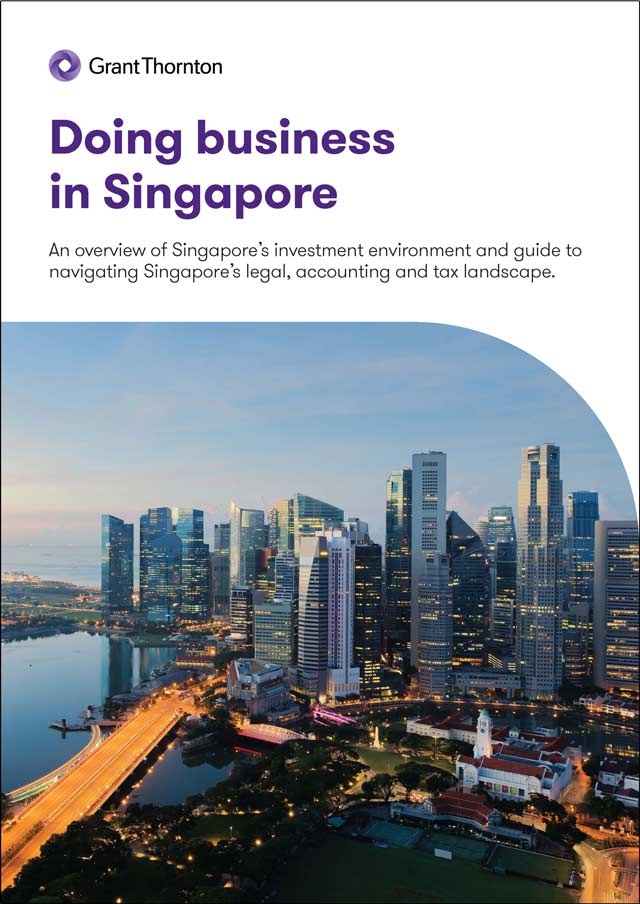Whether you’re legally obligated to undertake an audit or it is part of your best practice procedures or a milestone to pursue your strategic ambitions – no...
-
Accounting Advisory
Our accounting advisory team help businesses meet their complex financial reporting requirements. The team can support in applying new financial reporting standards, IFRS/ US GAAP conversions, financial statement preparation, consolidation and more.
Our business process outsourcing team can provide accounting and payroll services to help you reduce costs, improve efficiencies and, in many cases, ensure...
-
Payroll
Our team can handle your payroll processing needs to help you reduce cost and saves time so that you can focus on your core competencies
-
Managed accounting and bookkeeping
Outsourcing the financial reporting function is a growing trend among middle market and startup companies, as it provides a cost-effective way to improve the finance and accounting function. Our team can help with financial statement preparation, consolidation and technical on-call advisory.
In today’s fast changing risk and regulatory landscape, it is imperative that organisations adapt to changes and make risk-informed strategic choices. At Grant...
Our corporate finance team helps companies with capital raising, mergers and acquisitions, private equity, strategic joint ventures, special situations and...
Our team brings in-depth knowledge of both business and regulatory environment to ensure compliance with regulatory requirements, and to advise on corporate...
Our CFO advisory services team helps CFOs in defining business strategy, mitigating risks and mentoring the leadership.
-
Accounting Advisory
Our team helps companies keep up with changes to international and domestic financial reporting standards so that they have the right accounting policies and operating models to prevent unexpected surprises.
-
Crypto Accounting Advisory Service
Our team can help you explore appropriate accounting treatment for accounting for holdings in cryptocurrencies, issuance of cryptocurrencies and other crypto/blockchain related accounting issues.
-
ESG Reporting and Accounting
As part of our ESG and Sustainability Services, our team will work with you on various aspects of ESG accounting and ESG reporting so that your business can be pursue a sustainable future.
-
Expected Credit Loss
Our team of ECL modelling specialists combine help clients implement provisioning methodology and processes which are right for them.
-
Finance Transformation
Our Finance Transformation services are designed to challenge the status quo and enable your finance team to play a more strategic role in the organisation.
-
Managed Accounting and Bookkeeping Services
Outsourcing the financial reporting function is a growing trend among middle market and startup companies, as it provides a cost-effective way to improve the finance and accounting function. Our team can help with financial statement preparation, consolidation and technical on-call advisory.
Our cyber team help organisations navigate a threat landscsape that is constantly changing, to maintain resiliency and provide support during worst case...
Whether you’re buying or selling, refinancing or raising money through the capital markets, our team comes in to help you conduct thorough due diligence on the...
-
Business Tax Advisory
Our business tax team can help you navigate the international tax landscape, grow through mergers and acquisitions, or plan an exit strategy.
-
Corporate Finance
Our corporate finance team helps companies with capital raising, mergers and acquisitions, private equity, strategic joint ventures, special situations and more.
-
Financial Due Diligence
From exploring the strategic options available to businesses and shareholders through to advising and project managing the chosen solution, our team provide a truly integrated offering
-
Valuations
Our valuation specialists blend technical expertise with a pragmatic outlook to deliver support in financial reporting, transactions, restructuring, and disputes.
Related insights:


Mergers & Acquisitions
Reducing risk in cross-border transactions
Cross-border merger and acquisition opportunities are increasing as healthy company financials in many economies drive an appetite for deals.
Our environmental, social and governance (ESG) and sustainability team provide end-to-end solutions that help organisations no matter where they are on their...
-
Sustainability with the ARC framework
Backed by the CTC Grant, businesses can tap on the ARC Framework to gain access to sustainability internally, transform business processes, redefine job roles for workers, and enhance productivity. Companies can leverage this grant to drive workforce and enterprise transformation.
Related insights:


Sustainability
Navigating the Carbon Border Adjustment Mechanism (CBAM) and its impacts on global trade
The European Union (EU) stepped up in 2021 and unveiled the Carbon Border Adjustment Mechanism (CBAM) where fees are charged on carbon footprint of certain imports. This aims to curb emissions, level the playing field, and unlock opportunities for innovation and a greener future.
Investigations can range from complex, multi-jurisdictional assignments to the investigation of alleged employee fraud and due diligence of third parties. We...
We help companies identify and resolve issues affecting profitability, protect enterprise value and facilitate a full recovery where possible.
We use a combination of reason and instinct based on our experience and local insights as we work with you to develop strategies that help you to understand...
-
Business Tax Advisory
Our business tax team can help you navigate the international tax landscape, grow through mergers and acquisitions, or plan an exit strategy.
-
Corporate Tax Compliance
Our corporate tax teams prepare corporate tax files and ruling requests, support you with deferrals, accounting procedures and realise tax benefits.
-
Tax Governance
Our Tax Governance Services are designed to assist organisations in establishing effective tax governance practices, enabling them to navigate the intricate tax environment with confidence.
-
Goods and Services Tax
Our GST team supports organisations throughout the entire business life-cycle. We can help with GST registration, compliance, risk management, scheme renewals, transaction advisory and more.
-
Transfer Pricing
Our Transfer Pricing team advises clients on their transfer pricing matters on and end-to-end basis right from the designing of policies, to assistance with annual compliance and assistance with defense against the claims of competing tax authorities.
-
Employer Solutions
Our Employer Solutions team helps businesses remain compliant in Singapore as well as globally as a result of their employees' movements. From running local payroll, to implementing a global equity reward scheme or even advising on the structure of employees’ cross-border travel.
-
Private Client Services
Our private client services team provides a comprehensive cross section of advisory services to high net worth individuals and corporate executives, allowing such individuals to concentrate on their business interests.
Measuring value in financial reporting, legal disputes or looking at acquisitions or investments brings a high level of clarity and confidence to business...
Careers at Grant Thornton
Students and Graduates
Learn more about our culture and how we enable you to thrive
-
Welfare and benefits
We believe that a thriving team is one where each individual feels valued, fulfilled, and empowered to achieve their best. Our welfare and benefits aim to care for your wellbeing both professionally and personally.
-
Career development
We want to help our people learn and grow in the right direction. We seek to provide each individual with the right opportunities and support to enable them to achieve their best.
Experienced hires
Current vacancies






